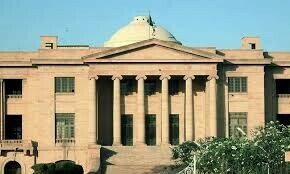TEHRAN: A debate raged in Iran on Sunday over how and when to respond to a top nuclear scientist’s assassination, blamed on arch-foe Israel, as his body was honoured at shrines to prepare it for burial.
Two days after Mohsen Fakhrizadeh died from wounds sustained in a firefight between his guards and unidentified gunmen near Tehran, parliament demanded a halt to international inspections of Iranian nuclear sites while a top official hinted Iran should leave the global non-proliferation treaty.
Iran’s Supreme National Security Council usually handles decisions related to the country’s nuclear programme, and parliamentary bills must be approved by the powerful Guardian council.
President Hassan Rouhani has stressed the country will seek its revenge in “due time” and not be rushed into a “trap”.
Israel says Fakhrizadeh was the head of an Iranian military nuclear programme, the existence of which the Islamic republic has consistently denied, and Washington had sanctioned him in 2008 for activities linked to Iran’s atomic activities.
The murder has revived opposition to nuclear deal with western countries among Iranian conservatives
His body was taken for a ceremony on Sunday at a major shrine in the holy city of Qom before being transported to the shrine of the Islamic republic’s founder Imam Khomeini, according to Iranian media.
Fakhrizadeh’s funeral will be held on Monday in the presence of senior military commanders and his family, the defence ministry said on its website, without specifying where.
Demands for strong reaction
Israel has not officially commented on Fakhrizadeh’s killing, less than two months before US President-elect Joe Biden is set to take office after four years of hawkish foreign policy under President Donald Trump.
Trump withdrew the US from a multilateral nuclear agreement with Iran in 2018 and then re-imposed and beefed up punishing sanctions as part of its “maximum pressure” campaign against Tehran.
Biden has signalled his administration may be prepared to rejoin the accord, but the nuclear scientist’s assassination has revived opposition to the deal among Iranian conservatives.
The head of Iran’s Expediency Council, a key advisory and arbitration body, said there was “no reason why (Iran) should not reconsider the Nuclear Proliferation Treaty”.
Mohsen Rezai said Tehran should also halt implementation of the additional protocol, a document prescribing intrusive inspections of Iran’s nuclear facilitates.
Iran’s supreme leader Ayatollah Ali Khamenei called on Saturday for Fakhrizadeh’s killers to be punished.
Parliament speaker Mohammad-Bagher Ghalibaf called on Sunday for “a strong reaction” that would “deter and take revenge” on those behind the killing of Fakhrizadeh, who was aged 59 according to Iranian media.
Call for strikes
For Israeli newspaper Haaretz, Fakhrizadeh’s killing was clearly tied to Biden’s arrival in office. “The timing of the assassination, even if it was determined by purely operational considerations, is a clear message to President-elect Joe Biden, intended to show Israel’s criticism” of plans to revive the deal, it said.
Britain, a party to the accord, said on Sunday it was “concerned” about possible escalation of tensions in the Middle East following the assassination, while Turkey called the killing an act of “terrorism” that “upsets peace in the region”.
In Iran, ultra-conservative Kayhan daily called for strikes on Israel if it were “proven” to be behind the assassination.
Kayhan called for the port city of Haifa to be targeted “in a way that would annihilate its infrastructure and leave a heavy human toll”, saying the US and Israel “are in no way ready to fight a war”.
Iran has responded to the US withdrawal from the 2015 deal by gradually abandoning most of its key nuclear commitments under the agreement.
Rezai called on Iran’s atomic agency to take “minimum measures” such as “stopping the online broadcast of cameras, reducing or suspending inspectors and implementing restrictions in their access” to sites, ISNA news agency reported.
Iran’s parliament said the “best response” to the assassination would be to “revive Iran’s glorious nuclear industry”.
In a statement signed by all 290 members, it said the killing showed that Israel, the US and their allies had become “brazen” in their “terror and sabotage” against Iran.
It called for International Atomic Energy Agency (IAEA) inspectors to be barred from the country’s atomic sites, said the legislature’s news agency ICANA.
Some MPs had earlier accused inspectors of acting as “spies” potentially responsible for Fakhrizadeh’s death.
But the spokesman for Iran’s atomic energy organisation, Behrouz Kamalvandi, told IRNA on Saturday that the issue of inspectors’ access “must be decided on at high levels” of the Islamic republic’s leadership.
Firebrand MP Javad Karimi Ghodousi, had on Friday accused Rouhani of potentially setting a target on Fakhrizadeh by setting up a meeting between him and IAEA officials in the past — a claim strongly denied by the Rouhani administration.
Published in Dawn, November 30th, 2020














































Dear visitor, the comments section is undergoing an overhaul and will return soon.